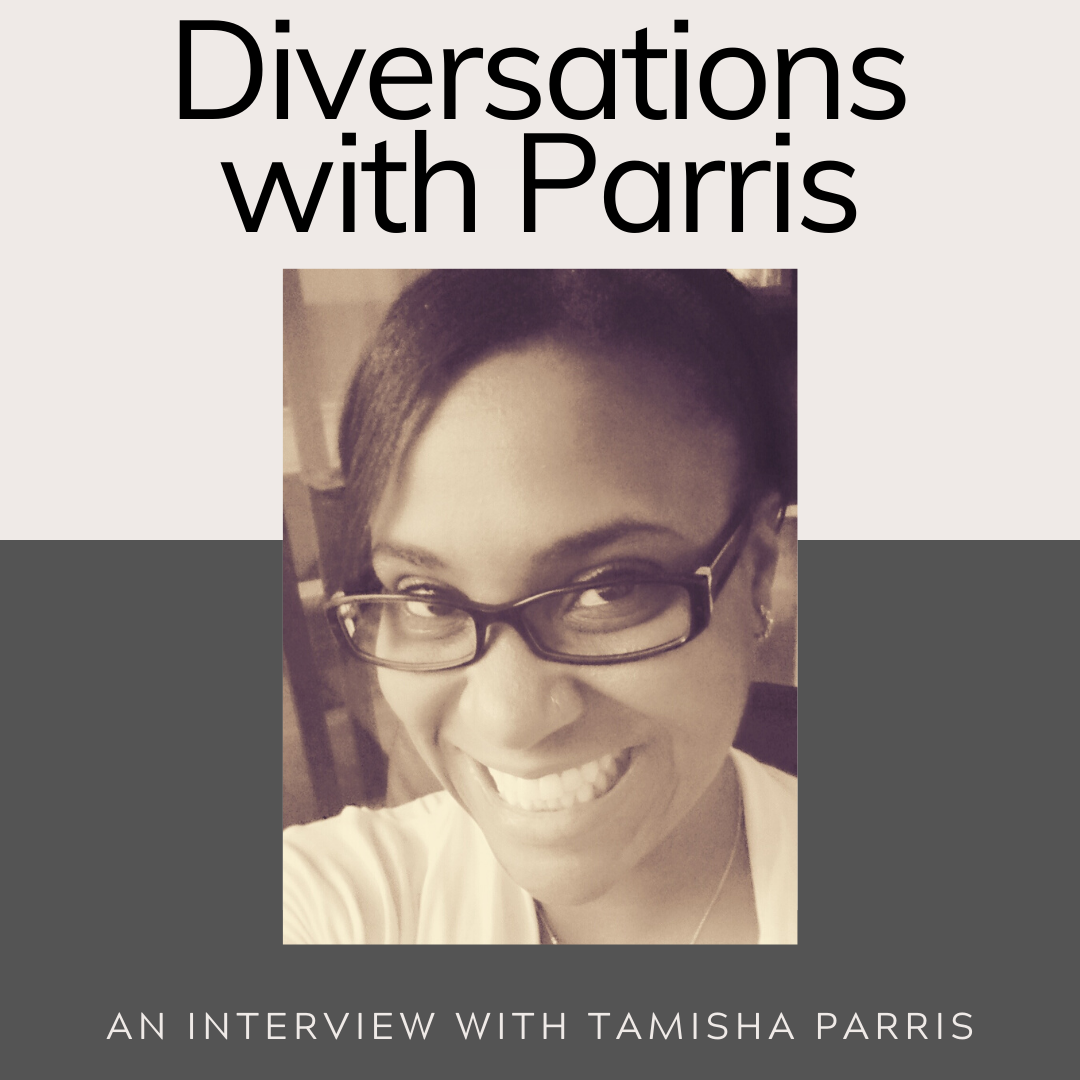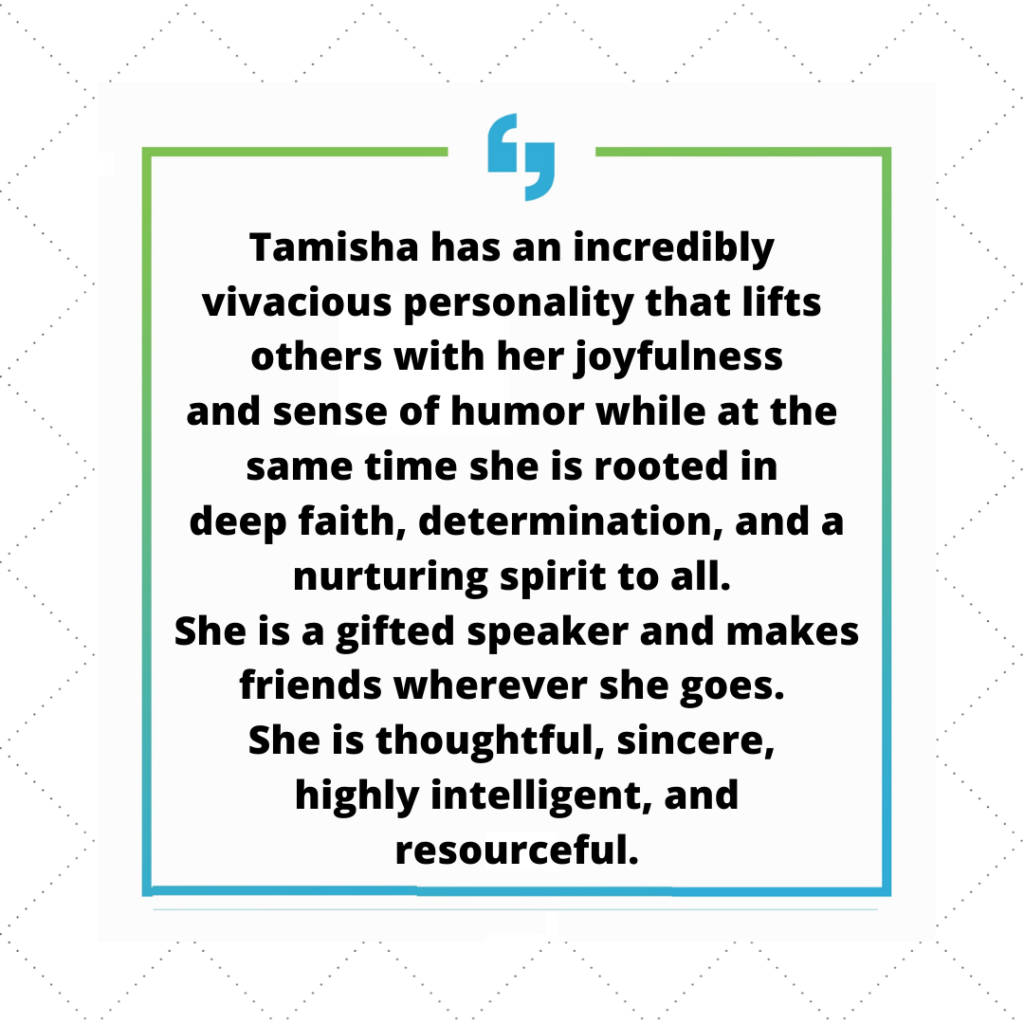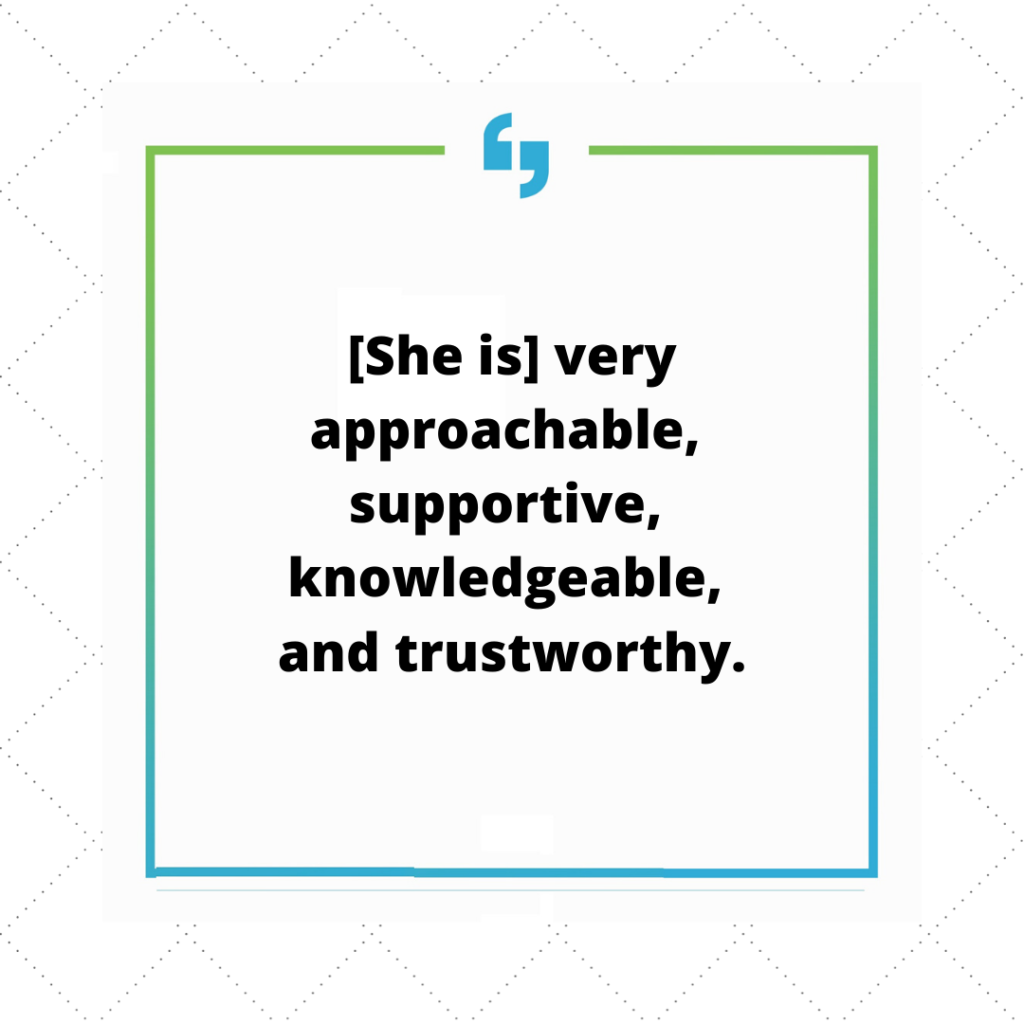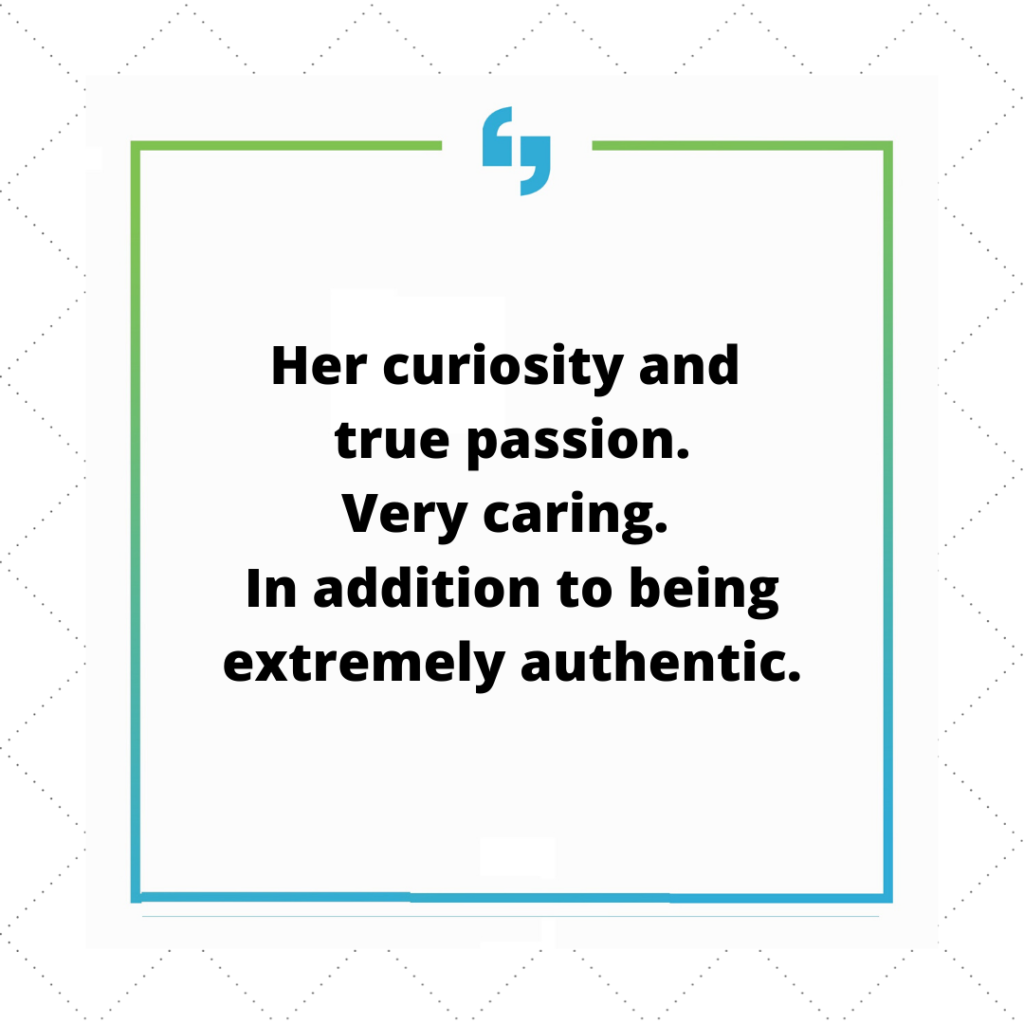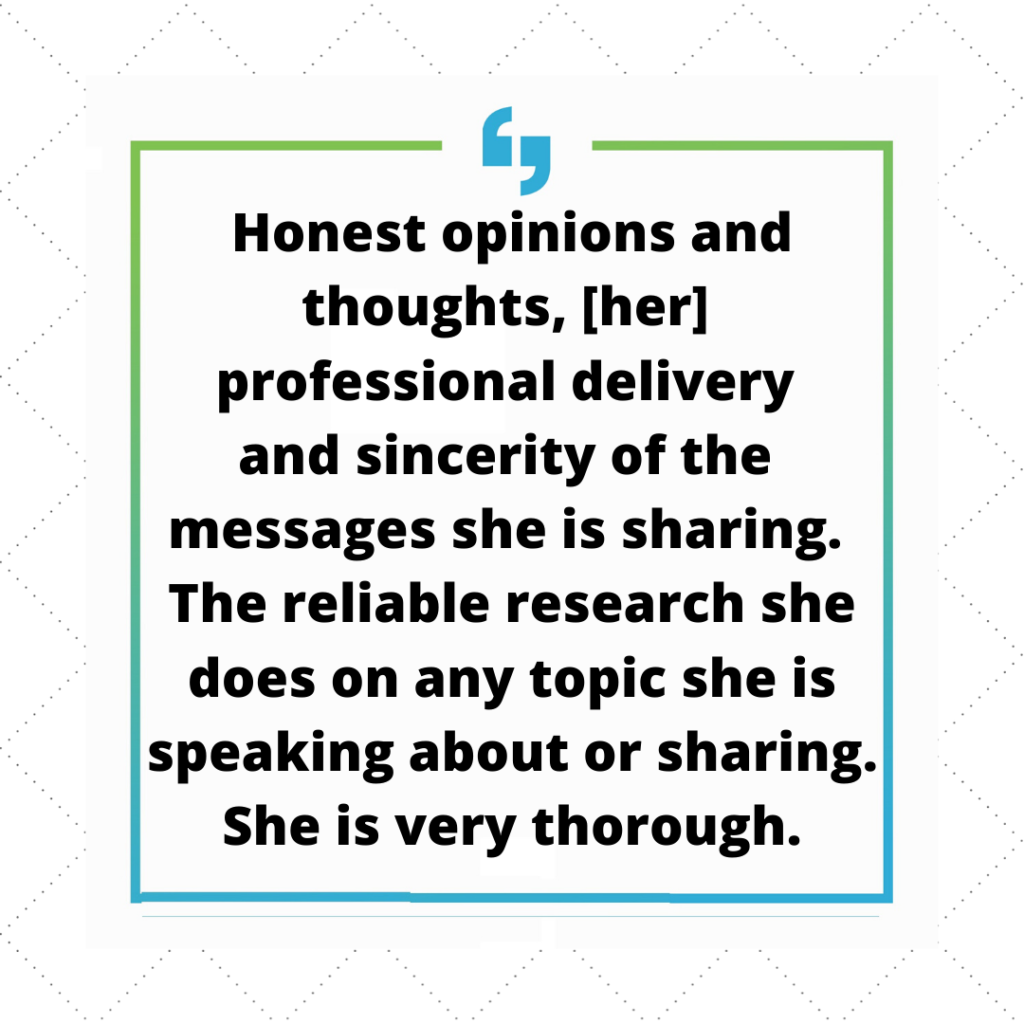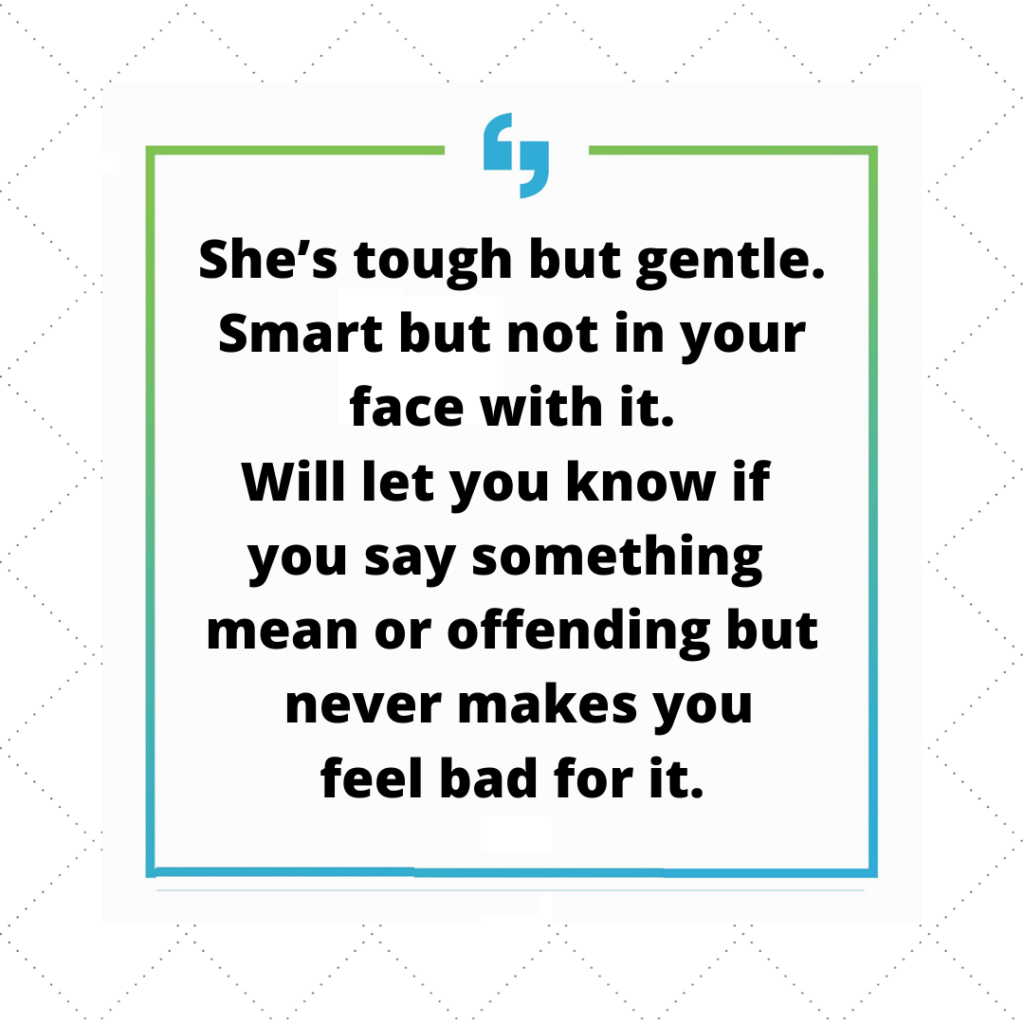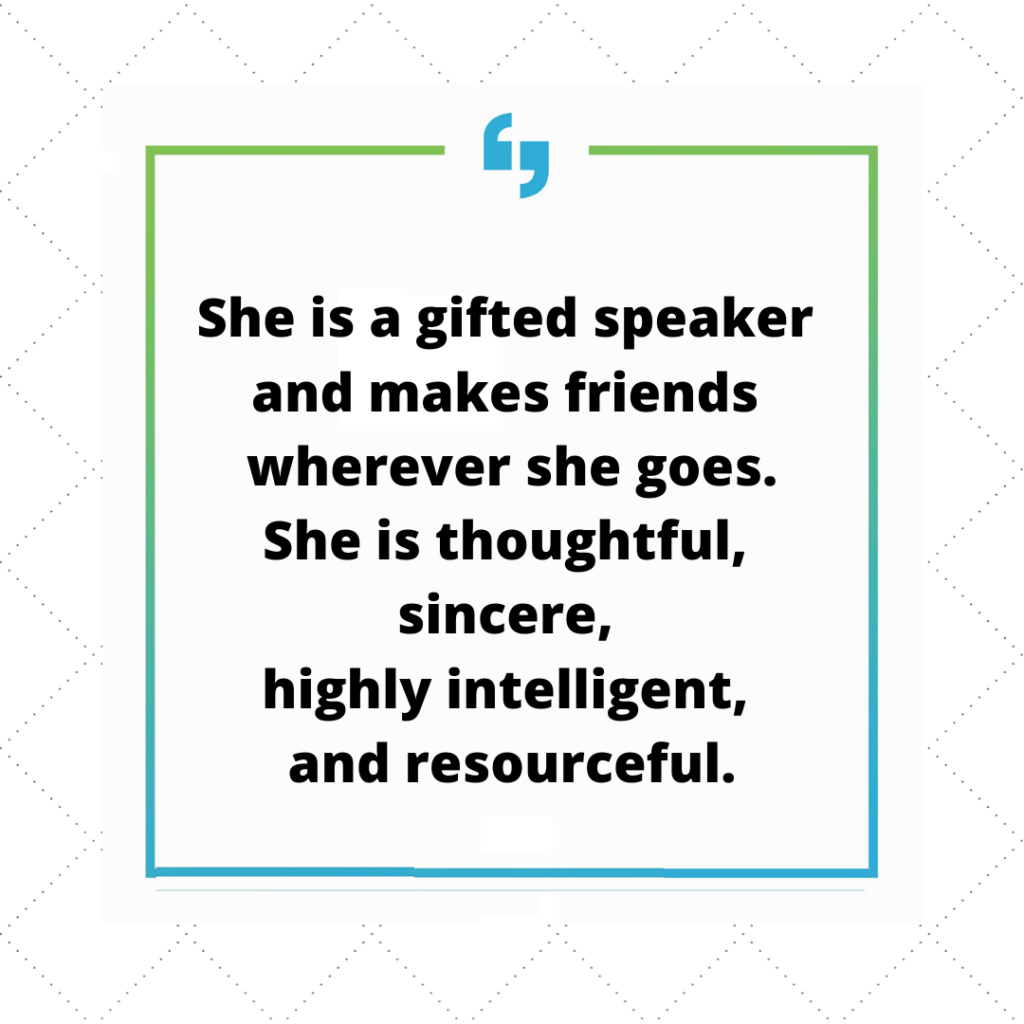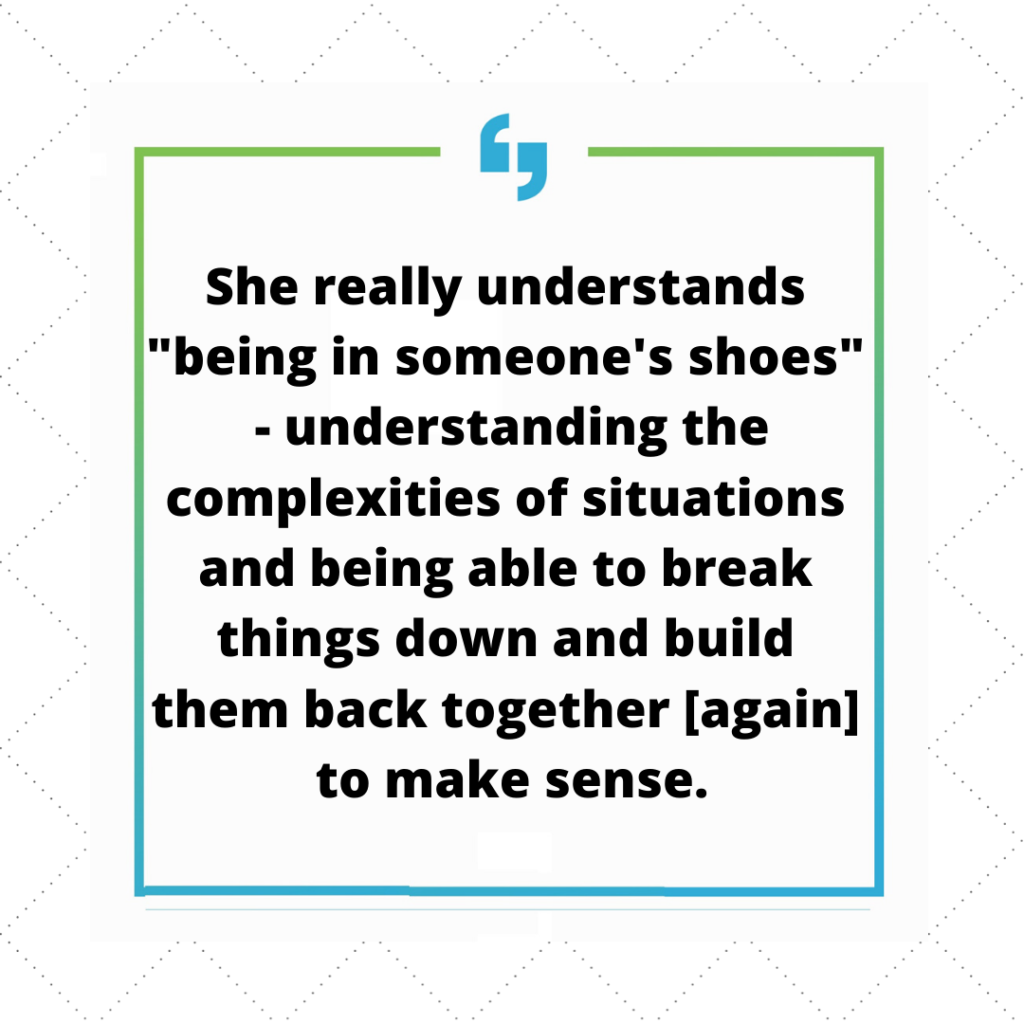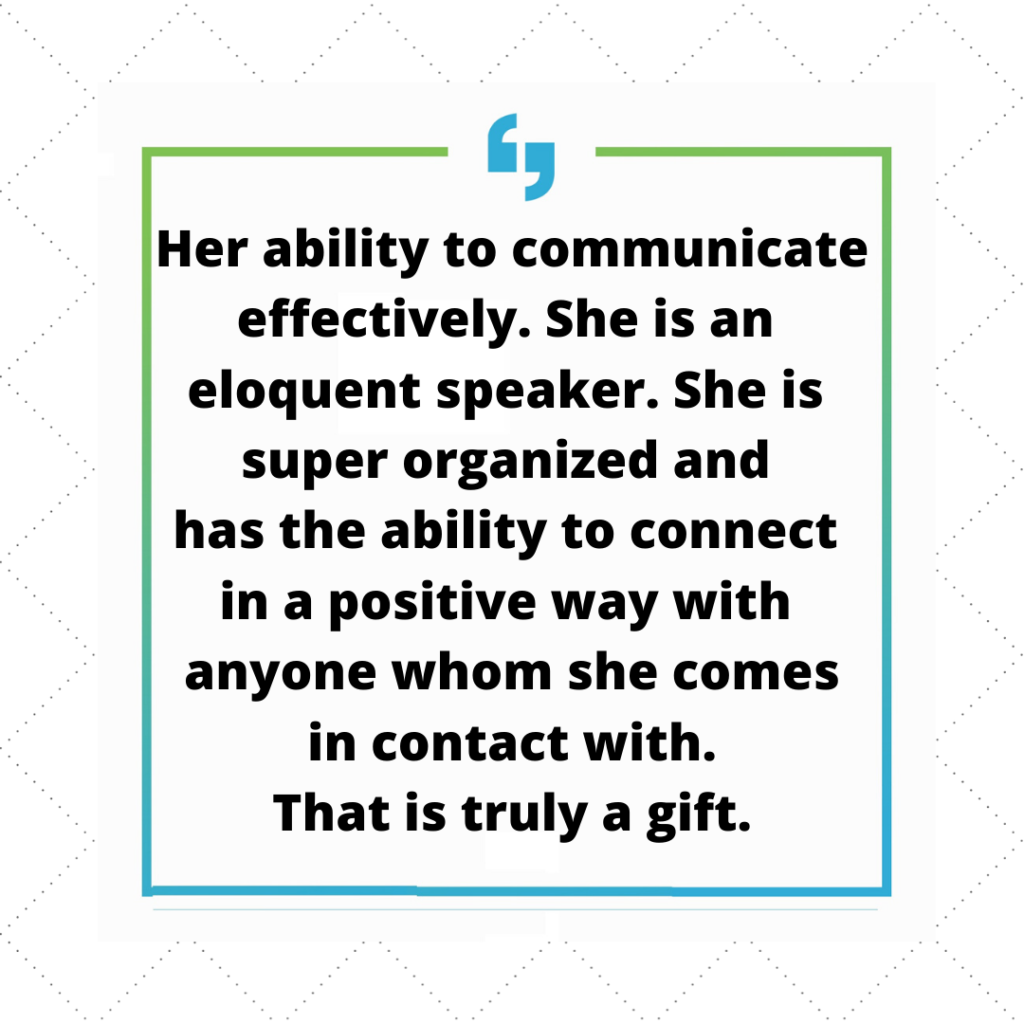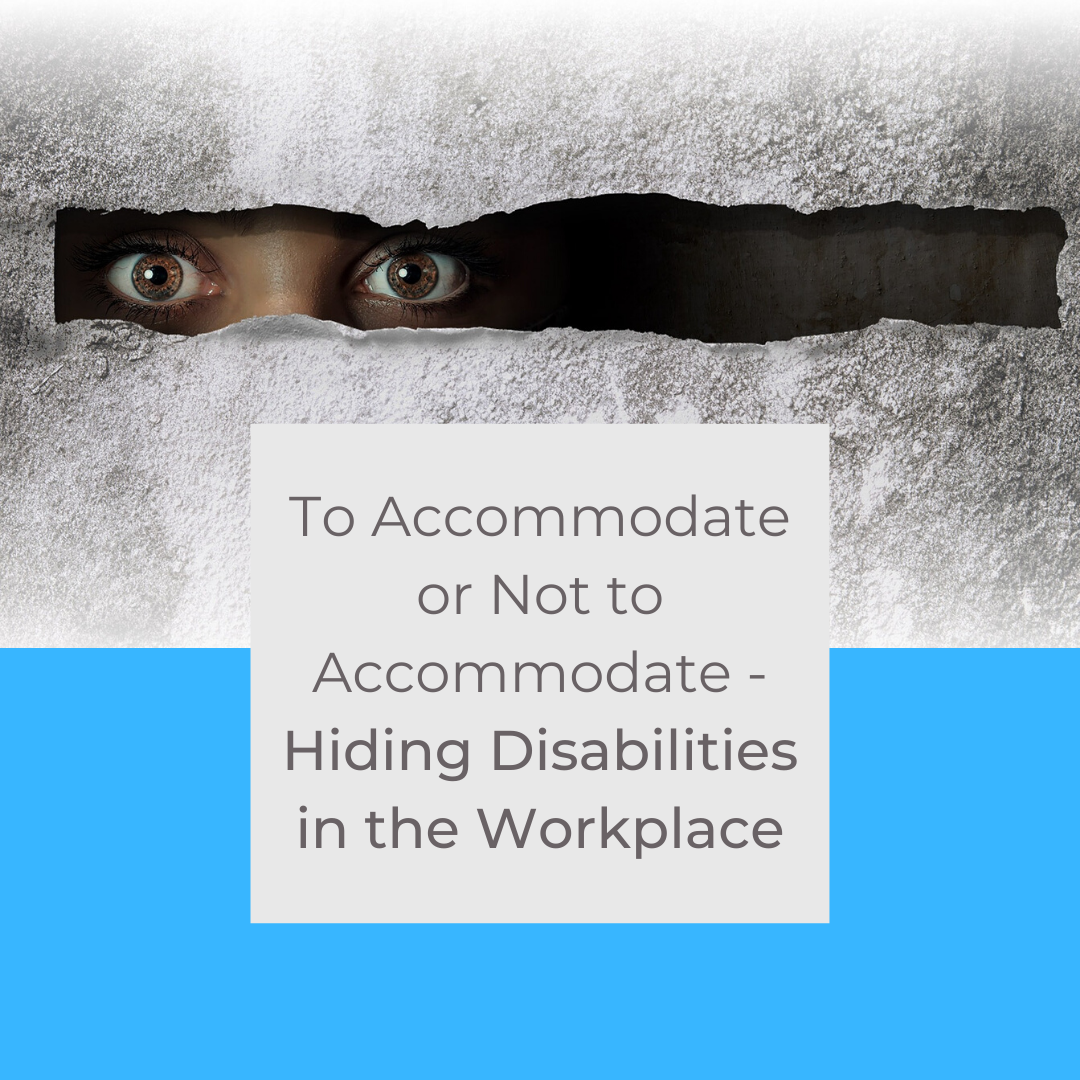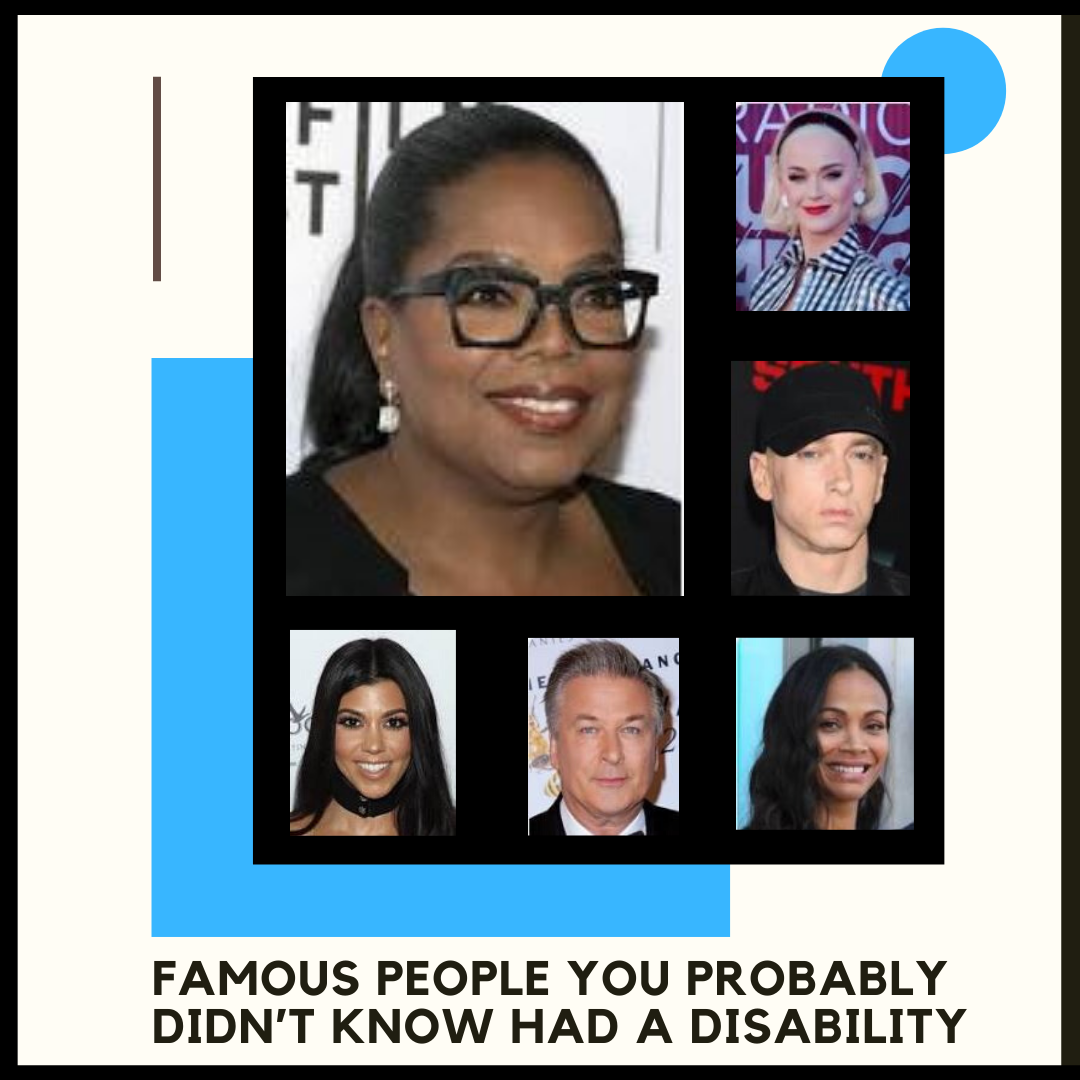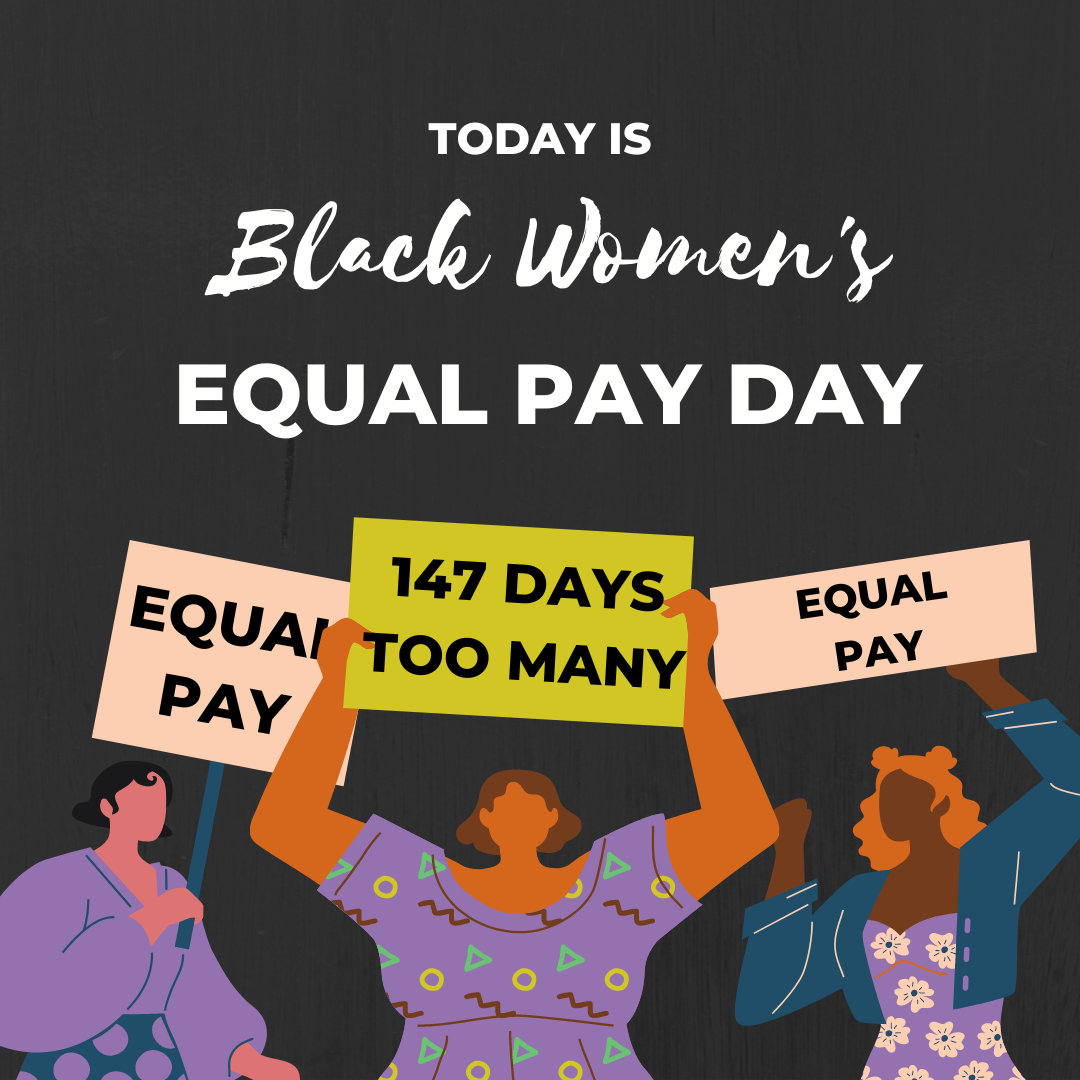Today we chat with Tamisha Parris of Parris Consulting about her passion for diversity & inclusion, and what brought her to the field.
As a Black Canadian woman, Tamisha has experienced intersectionality in her own life, and she sees how the various “identity markers” that characterize her everyday life and background contribute to her experience of society, whether advantageously or disadvantageously. Developing consciousness about the implications of identity markers for how we make our way in the world has helped Tamisha explore not only her own beliefs, actions, and strategies but those of many other individuals and organizations.
Tell us a bit about your background.
I was born and raised in Toronto. Spent a few of my high school years in Ottawa. I’ve also lived in Mexico and am currently living in Vancouver. My family is of Jamaican background.
What were the demographics of the schools you attended as a child?

Throughout my childhood I attended very diverse schools in Toronto. The best part of my childhood was making friends from so many different backgrounds. I learned how to celebrate diversity without even realizing it. I am grateful for that.
In grade 8, I moved to Ottawa and attended a predominately white high school. It was very different from schools I’d previously attended and, although
it represented a drastic decline in diversity, I never had an issue fitting in. I never felt like I didn’t belong. I am also grateful for that.
Are you still friends with any of your childhood friends?
Yes, actually. I’m blessed with loyal life-long friends. Some of my closest friends today are friends I met in elementary and high school.
Did you ever experience racism as a child?
I remember only two incidents of racism towards me growing up. Both took place around the same time in which I was in grade one or two. The first incident I was called the ‘n’ word and the second an older lady expressed I had no right using the same public washroom as her. Both times, I was unfazed. I had never heard the ‘n’ word before that and the second incident I had no clue what the lady was referring to. Also, both times someone else stood up for me. However, many years later is when I came to realize how amazing it was that others (one a stranger) spoke up on my behalf in the face of discrimination. I do hope that I have been ‘that person’ for others throughout my life.
I’m very fortunate that as a child I didn’t have to deal with anything personally outside of those two incidents. Now, as an adult it’s a different story. I’m now much more aware of the ways in which systemic racism, sexism and other oppressions can limit opportunity and mold perception.
What's your educational background?
I attended the University of Toronto, where I majored in equity studies. At the time, very few people knew what a degree in equity studies would lead to. My parents were very concerned I was wasting my money and wasn’t going to graduate with anything that would lead to a good job. Who knew diversity was going to become such a huge force and touch every person and every industry around the globe? I did! Well, I hoped.
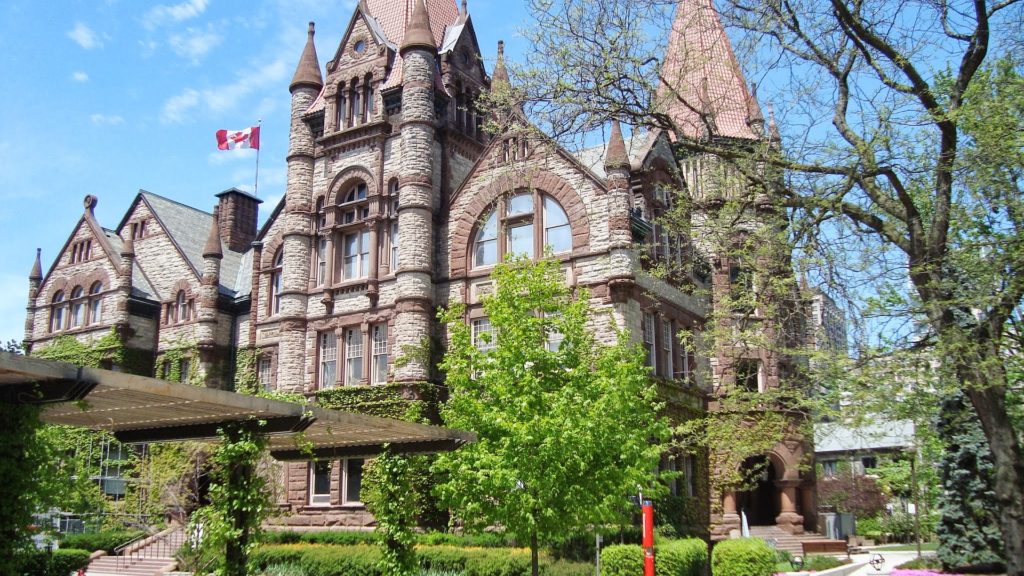
In university, I took courses in an array of disciplines – ethnic and cultural studies, gender and sexuality studies, law, psychology, sociology, physiology, kinesiology, African studies, religion, statistics and anthropology.
I also have a background in project management, learning and development and a certificate in teaching English as a second language (specialty in business English).
What's your passion?

It sounds cliché but my true passion is helping people. Advocating, listening, teaching, advising, being present… are all ways I do my best to help. I am also a true believer that education is power. And I don’t mean formal education. I mean opening the mind to learning from every element available to us. I love to learn and I love to share. Learning and teaching are also my passions. Oh and if you were to ask my family and friends they’d say my passion is talking, socializing and networking. And, laughing. I agree.
What motivates, drives or fuels you?
To be honest, life motivates me. Striving to live my best life. Endeavouring to give my son the tools to live his best life. Helping people see how they can be living their best lives. Also, knowing that there are things I can do to positively impact the everyday lives of people in the workplace is highly motivating.
What are your favourite causes?
Well, I have many. They’ve shifted as life has happened. These are the ones that quickly come to mind.
- At-risk youth
- Autism
- Alzheimer’s
- Mental health
- Cancer – all forms.

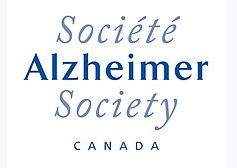

What are your heart's desires?
To be happy. To love and be loved. To travel. To balance the work I love and enjoy with living my best life. Spending time with the people I love and adore. And, to laugh – a lot!
Work-wise I want to continue to facilitate authentic conversations, help implement strategies and practices that promote and celebrate diversity and equality, and assist in creating work environments that allow people to do their best work while feeling valued and appreciated. I want to help people and organizations achieve true inclusion and reap the benefits of it.
How have you overcome obstacles you’ve faced in the past?
This is a hard question because there is no one way. I tend to talk things through with the people I love – experiences, fears, obstacles, wins, misses, everything. I surround myself with people who support me but also tell me the truth – people I can be open, honest and vulnerable with. I have no secrets from them. I’m very open. Very transparent. You get what you get with me. And my ability to be open with people has caused a chain reaction. They are also open with me. That openness – that vulnerability – has been a driving force in my life. It’s helped me overcome many obstacles. By sharing, I know I’m not alone. Don’t get me wrong, though. As open and transparent as I am now, I still led a double life as a teenager!
I also have an amazing psychotherapist – she helps. And I’m a faithful person. I believe in a higher being. So, my faith has played a huge role in all aspects of my life, especially when it comes to confronting obstacles and challenges head on.
Knowing what you know now, how would you advise your younger self?
Oh, this one is easy. I’d tell my younger self to STOP WORRYING. I’ve lost years of sleep because of worry and anxiety. Everything always turns out exactly how it’s supposed to. Every journey, every path, every step, every breath has brought me to where I am today. Positive and negative. Plus, worrying doesn’t stop life from happening. My dad used to always remind me that I am worrying about things that are only 50% likely to happen. So, why bother waste time? I know it’s not that simple. But, it did help calm my mind.
Second, I would tell my younger self to LIVE LIFE. To stop limiting myself out of fear. Just do it – no regrets.
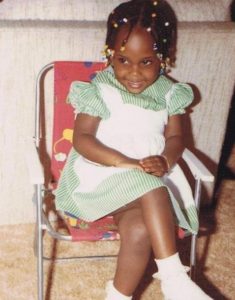
What have you experienced that’s been the most life changing?
Giving life to my son. A son who’s:
- Brilliant (although my most frequent statement to him is “you’re smart, but you’re not smarter than me.” Although he is in so many ways. But, no need to share that with him. Wink, wink.)
- The most affectionate and loving human I’ve ever met. (I have to limit the amount of hugs we engage in to 10 a day because I’d never get anything done if it were up to him and his unlimited cuddling.)
- The most stubborn human I know. (No clue where he gets that from – ha ha.)
- The cleverest.
- The most challenging.
- The funniest.
- On the Autism spectrum (formally known as Asperger’s Syndrome).
- Suffering from anxiety. I know a lot about this as do so many people – especially our young people.
- Overcame a number of life threatening and debilitating experiences.
My son changed my life. In every single aspect. He has taught me things about myself and the world that I never knew I didn’t know. He is my biggest and best accomplishment.
Where does your passion for diversity come from?
I was born with an overwhelming desire to help. In junior kindergarten, I was 4 years old, I spent a couple hours a week helping out in the special ed (now known as special-needs education) classroom with the children in my school that had physical, intellectual (or both) disabilities. I haven’t stopped working with people since.
I have always had a strong desire to advocate for people that are underrepresented and overlooked. I am blessed with the ability to educate and teach. So, it was only natural that I gravitated towards diversity work. Through both volunteer and professional avenues.
Why is it so important for you to share/spread awareness of diversity to others?
Too many people in the world are suffering because of other people’s ignorance. I believe that if we can just open our hearts and our minds and learn just a little about those who are different from us, we can change the dynamics of our world.
It’s been proven time and time again that we’re stronger together. The more we come together, the greater the outcome. For all of us! It’s an honour to work in this field. Everything I do can make a difference in someone’s well-being. That’s reward enough. I want to bring awareness so that everyone wants to jump on this bandwagon.
What’s your experience with diversity work?
As mentioned, it kicked off in junior K. I’ve engaged in diversity work my entire life. At 14, my first “real” job was at the Special Olympics as a volunteer arrhythmic gymnastics coach, along with my mother. Even though it was her ‘demand’ that I volunteer, it changed my life. The love I experienced from each individual gymnast was beyond anything I’d ever thought possible in a professional capacity. Since that time I’ve worked with at-risk youth, teen moms, people with intellectual disabilities, people with physical disabilities, people with compromised health conditions, the homeless, and many more. I’ve worked with the truly oppressed and disregarded. It’s been humbling and educational.
I was blessed with the ability to connect, and to connect others. I was also blessed with the ability to teach difficult and uncomfortable lessons in a non-threatening, light manner that encourages openness and vulnerability.
I believe we live in a world that encompasses a lot of amazing people who, if just given a chance, can shine even brighter and touch even more lives. I want to make this world a better place for me, for them and for you.
To me, that extends to the workplace. Most people spend more time at work or working than they spend with their families and friends. I’ve worked with non-profit organizations, government services and facilities, educational institutions, small businesses, individuals and large corporations. I bring a unique mix of creativity, knowledge, skill and experience, so I’m able to collaborate with any organization that’s committed and willing to do the work.
What are the greatest rewards and greatest challenges of diversity work?
There are too many rewards to list. However, they don’t always come easily. Often, I enter environments that have become toxic and I’m tasked with working miracles. People become jaded, angry, or untrustworthy and don’t believe anything I do will make a difference in their lives. In these situations, I immediately get pushback, disengagement, disbelief, and too often the side effects of failed diversity training. A lot of organizations don’t believe in diversity and inclusion, yet they engage because they have checkboxes to check. This just weakens morale and strengthens disengagement. If an organization doesn’t do, implement and maintain the work authentically, from the top down, it will be obvious that the effort is half-hearted.
Often social, political, cultural (I can go on and on) climates create many hoops for me to jump through to prove myself and the theories that have already been proven. No matter where you go, there are nay-sayers and those who do not believe. They’ll work their hardest to challenge, provoke, and create a reaction. That makes my work a challenge. But it also makes the rewards that much greater.
What does it look like when people go from not understanding diversity to understanding its importance?
It opens up a whole new conversation. They move from being aware of “the elephant in the room” to engaging in meaningful dialogue about what diversity means and how it benefits everybody. The doors open for true understanding and inclusivity starts to take shape.
What made you decide to start a blog and a soon-to-come podcast?
I want to start the diversation – globally. I want to really engage in meaningful conversation. I want to give people a platform, a safe place, to honestly express themselves and learn. Me included. I want to talk about the things people think about but don’t dare discuss. I want to provoke conversations about diversity that make us think – that challenge our perspectives, that open our minds to things we never knew we needed to know. I want to help make sense of things we didn’t even realize didn’t make sense – and also talk about all those other things we should know but haven’t processed or retained. I am hoping my blog and podcast will do all of that and more.
What will differentiate your podcast from other podcasts?
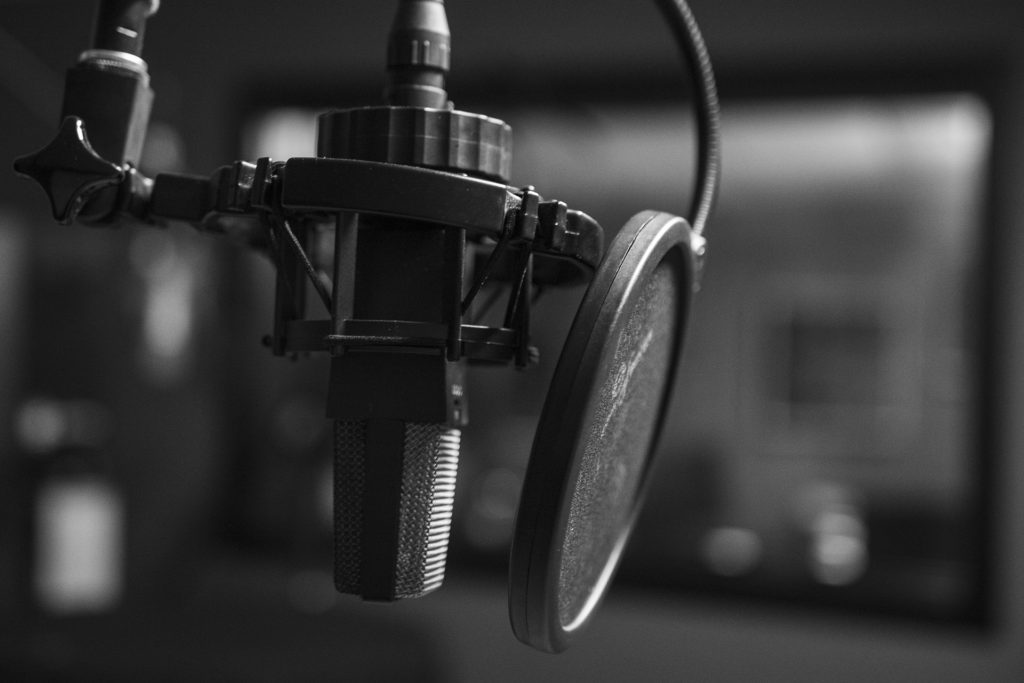
I read a stat the other day that as of December 2019 there were over 800,000 “valid” podcasts. Wow. So, how am I going to present something different? I don’t know. What I do know is that there’s clearly a market for podcasts. People are listening. Podcasts are the new radio. The new television. You can listen to podcasts on the go. They’re convenient and you have plenty of options to choose from.
I’m not expecting to have millions of listeners off the top. Yes, I am sure that would be nice and I
wouldn’t close the door if it happened. However, if my podcast can attract a base of loyal, committed listeners who want to learn, teach and discuss, I’d be happy. Regardless of how many people listen, I hope my podcast will bring positive change to all our lives.
Tell me about the name "Diversations with Parris - The INside".
Well, Diversations is just a creative play on the words diversity conversations. And, of course, with Parris means with me.
INside represents a shift in how we look at people. People of all kinds of backgrounds, experiences, and identities. Brave people. Thoughtful people. People who confront challenges every day because of who they are or what they’ve been through. And, not from the outside in, but from a more intimate place – their own lives. INside means sharing stories of real people and how they’ve dealt with obstacles, workplace inequities, and a lack of understanding and empathy from the people they work and interact with on a daily basis.
The key to INside is empathy. By featuring people’s experiences from their own point of view, INside encourages everyone to be open to their stories and empathetic toward their histories, their triggers, their mindsets – and often, their oppressions. Empathizing means being curious to know more about why people think or behave the way they do, whether they’re different from us or perhaps more relatable than we first thought, and it makes everyone more accepting. And that’s how we build INclusivity.
Who’s the target audience for the podcast?
Anyone who wants to participate in the diversation. Anyone open to at least listening. Of course, it would be great if everyone participated in sharing their own experiences, opinions, perspectives, thoughts, suggestions, advice and encouragement. Yet that’s not a requirement. I’m welcoming to anyone who wants to be open and just listen and learn.
What are your most positive attributes?
I actually put out a survey asking for questions for this interview, which was so helpful. I put this question out to them asking for them to list my most positive attributes according to their experience. Sometimes we go around thinking we’re just okay, but if we ask for feedback we realize we’re doing better than we thought. I was humbled by the responses I got to this question. They confirmed I was on the right track and that I have a lot to give – and the will to get it done. Select the images to reveal a few of their responses.
If you have any additional questions or comments for Tamisha, please reply to this post and she will respond to as many as she can. Let’s start the Diversation!

